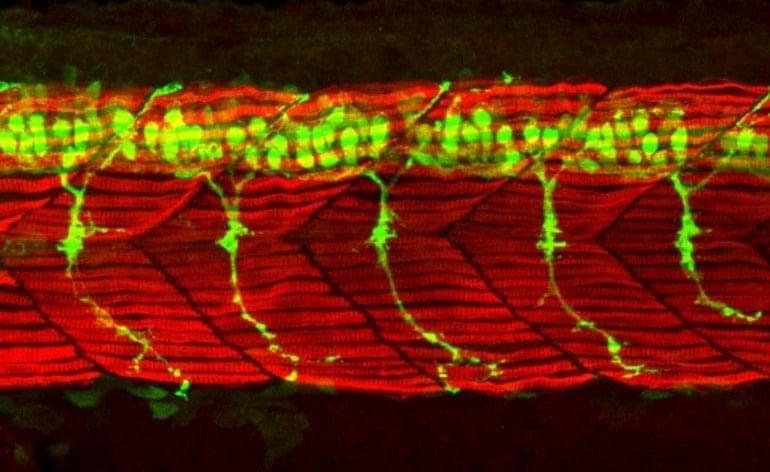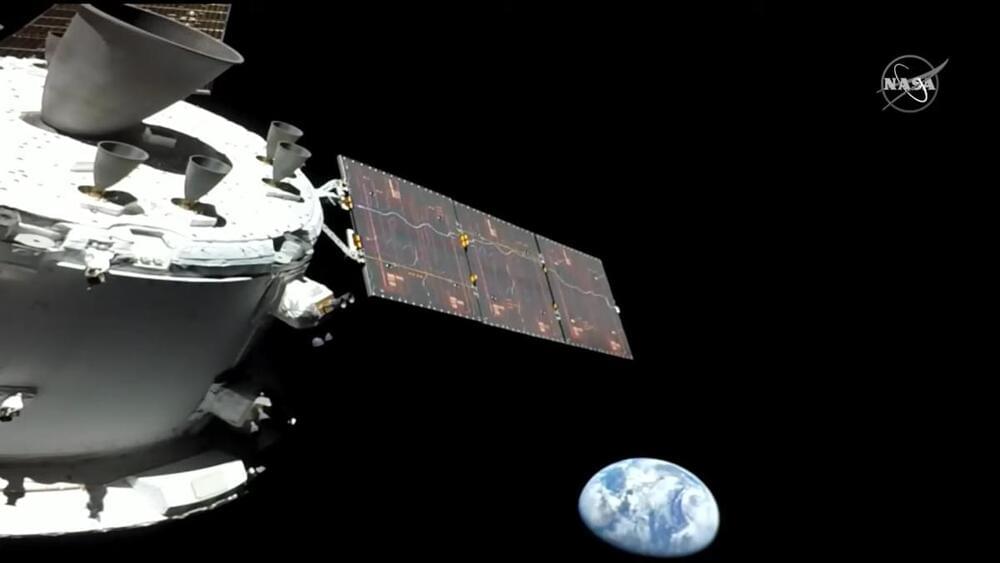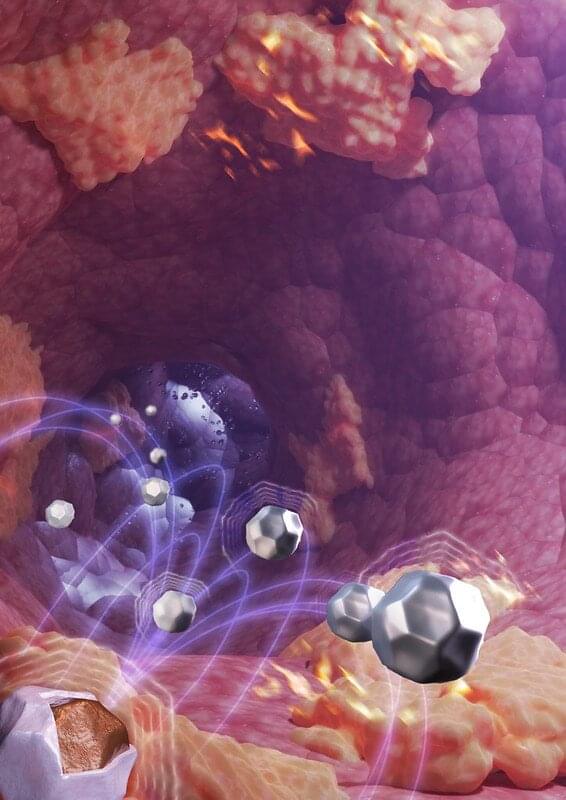The cosmic explosion happened 11.5 billion years ago, when the universe was fairly young, and could shed light on the evolution of stars and galaxies.


This is primarily about Rejuvant or AKG trials. When they first reported an 8 year age difference I did not truly believe it as that would mean I could take it, de-age, then age a bit, then just take it again. The tests however are ongoing and will feature people who are biologically older than their calendar age. There is also mention of 110 drugs/supplements that do “something” to mice. That would be quite a stack to take.
Dr Brian Kennedy presents potential interventions for extend our healthspan. Among them, Rejuvant – a CaAKG supplement which contain calcium + alpha-ketoglutarate shows better response for people who has biological age older than chronological age.
The first human trial of Rejuvant to reverse human biological age by 8 years in 7 month.
Rejuvant®, a potential life-extending compound formulation with alpha-ketoglutarate and vitamins, conferred an average 8 year reduction in biological aging, after an average of 7 months of use, in the TruAge DNA methylation test.
https://www.ncbi.nlm.nih.gov/pmc/articles/PMC8660611/
Dr. Brian Kennedy is internationally recognized for his research in the basic biology of aging and as a visionary committed to translating research discoveries into new ways of delaying, detecting, and preventing human aging and associated diseases. He is a Professor in the Departments of Biochemistry and Physiology at National University Singapore and Director of the Centre for Healthy Ageing in the National University Health System. From 2010 to 2016 he was the President and CEO of the Buck Institute for Research on Aging. Currently, he remains as a Professor at the Institute. Dr. Kennedy also has an adjunct appointment at the USC Davis School of Gerontology. Dr. Kennedy is also actively involved Biotechnology companies, serving in consulting and Board capacities, as well as Scientific Director of Affirmativ Health. Dr. Kennedy also serves as a Co-Editor-In-Chief at Aging Cell.
Participants with the top five fastest times will win a chance to compete on a livestream competition featuring a leaner, meaner escape room. The winner of the livestream will win $2,000!
Win $2,000 by conquering the ultimate Google Sheets escape room.

This included ‘evaluating life’, such as seeing memories and assessing how they had treated others during their time alive.
Others felt like they were ‘heading to a destination’ or were even aware that CPR was being performed.
Dr Sam Parnia, study author and a critical care expert from New York medical centre NYU Langone Health, said patients can also be aware of activities in intensive care after CPR and hear medics treating them.

Summary: Findings could have implications for new avenues of research for a range of neurodegenerative diseases including ALS and Alzheimer’s.
Source: University of Bath.
A discovery that may improve treatment options for patients with neurodegenerative diseases has been made by scientists at King’s College London and the University of Bath in the UK.

NASA’s moon-bound Orion space capsule fired its main engine for the first time about eight hours after the launch of the Artemis 1 mission to adjust its trajectory and check out the system.
The capsule was lofted to space by the giant Space Launch System rocket from NASA’s Kennedy Space Center in Florida early Wednesday morning (Nov. 16). The rocket’s second stage put the capsule on a trajectory toward the moon about two hours after liftoff. However, to perfect the path and to make sure that Orion’s own maneuvering system works as designed, the capsule performed a planned engine burn shortly before 10 a.m. EST (1500 GMT) on Wednesday.

We have had extremely positive results from customers who were suffering from Cancer, Heart Disease, High Blood Pressure, High Cholesterol, Thyroid Issues, Arthritis, Fibromyalgia, auto-immune diseases, Crohn’s Disease, Type 2 Diabetes, heavy metal toxicity, viral infections, scar tissue, and more.
Ingredients: Extract of Wild Harvested Shiaqga mushroom, Organic Black Cumin Seed Oil, Sacred Frankincense Oil, Organic Lemon Essential Oil, Organic Cinnamon Bark Essential Oil, and Organic Peppermint Essential Oil
The Rapid Immune Recovery has a 20x stronger concentration of the Shiaqga mushroom than the Daily Immune Restoration and 10X More Sacred Frankincense than Daily Immune Restoration Each bottle is a 30 day supply at 4 ml per day.

Oregon State University scientists have invented a way to make magnetic nanoparticles that get hotter than any previous nanoparticle, improving their cancer fighting ability.
Faculty from the OSU College of Pharmacy spearheaded a collaboration that developed an advanced thermal decomposition method for producing nanoparticles able to reach temperatures in cancer lesions of up to 50 degrees Celsius, or 122 degrees Fahrenheit, when exposed to an alternating magnetic field.
Findings of the preclinical study led by Oleh Taratula and Olena Taratula were published today in the journal Small Methods.

Last year, MIT developed an AI/ML algorithm capable of learning and adapting to new information while on the job, not just during its initial training phase. These “liquid” neural networks (in the Bruce Lee sense) literally play 4D chess — their models requiring time-series data to operate — which makes them ideal for use in time-sensitive tasks like pacemaker monitoring, weather forecasting, investment forecasting, or autonomous vehicle navigation. But, the problem is that data throughput has become a bottleneck, and scaling these systems has become prohibitively expensive, computationally speaking.
On Tuesday, MIT researchers announced that they have devised a solution to that restriction, not by widening the data pipeline but by solving a differential equation that has stumped mathematicians since 1907. Specifically, the team solved, “the differential equation behind the interaction of two neurons through synapses… to unlock a new type of fast and efficient artificial intelligence algorithms.”
“The new machine learning models we call ‘CfC’s’ [closed-form Continuous-time] replace the differential equation defining the computation of the neuron with a closed form approximation, preserving the beautiful properties of liquid networks without the need for numerical integration,” MIT professor and CSAIL Director Daniela Rus said in a Tuesday press statement. “CfC models are causal, compact, explainable, and efficient to train and predict. They open the way to trustworthy machine learning for safety-critical applications.”